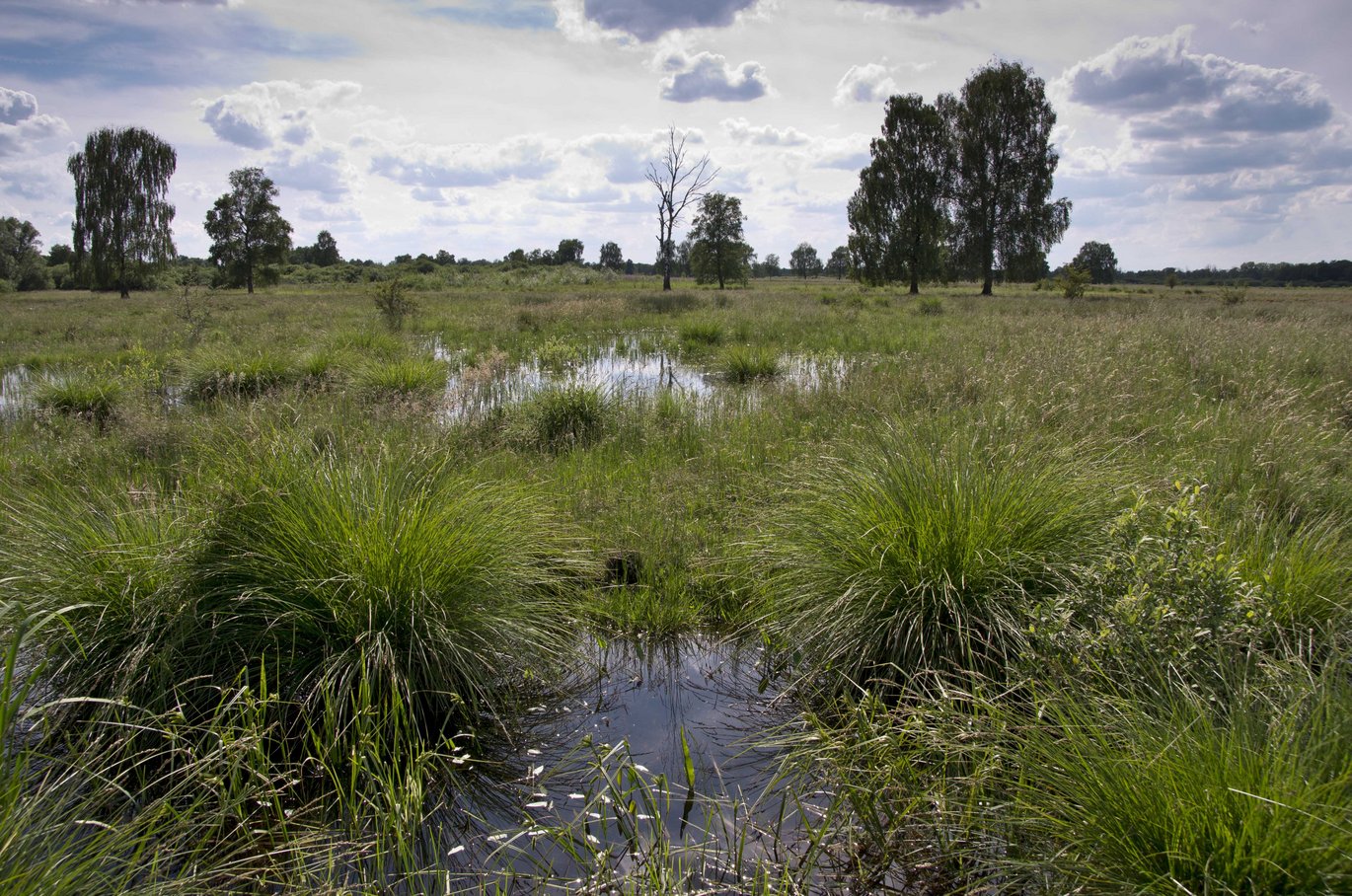Rewetted peatland and climate farmers are needed to save our climate
For centuries, the draining of the moors in Germany was politically and socially desired. The peat that was mined was used as solid fuel, and bogs were drained to gain fertile land. One of the goals was to improve the food insecurity. Today, the situation is very different. The nutrition of the population is secured and in addition to nature and species protection goals, climate protection brings the moor into the focus of attention.

There are reasons for this: in Germany, peat soils only make up around 7% of the agricultural area. Nevertheless, the agricultural use of organic soil causes around 42.4 million t CO2eq emissions every year. That is about 6.7% of German greenhouse gas emissions and only slightly less than the agricultural sector (2021: 54.8 million t CO2eq) emits via animal production, use of mineral fertilizers, etc.
Every year, 30 to 50 t CO2eq rise into the atmosphere from drained peat soil per hectare. If arable land is converted into grassland (moist and used extensively), around 15 t CO2eq emissions per ha and year can be avoided. Complete waterlogging brings significantly higher emission reductions (up to 35 t/ha). A huge chunk.
It has long been clear: there must be an end to greenhouse gas emissions from drained moors. Otherwise, the German climate goals cannot be achieved. Economic plant and animal production should continue to take place in rewetted moors, but in a different way than has been the case up to now. The conversion will demand a lot from the farmers. In southern Germany in the Swabian Donaumoos, The ARGE Donaumoos and farmers are already groping their way towards solutions. For test areas, they have adapted their agricultural management to wet peat soils. Some farmers already see themselves in the role of “climate farmers”. Society should respect them for taking this risk and support them to the best of their ability.
Uncharted territory: farming in rewetted peatland
It's mid-October and harvest time on the rewetted peatland. A tractor mows a test field in the Swabian Donaumoos in Southern Germany. A field with reed canary grass and sedges has been growing on the test site near Günzburg for three years. The grass, some of which is as tall as a man, is later shredded and then pressed into pellets. This is the proof: arable farming can also be carried out on wet soil.
However, potatoes, grain and protein-rich high-performance fodder for dairy cows cannot be produced there anymore. But feed for dry cows, beef cattle or water buffalo and energy - if the growth is fermented in the biogas plant. According to current studies, raw materials for insulating boards, furniture and terrace coverings can also be produced of paludiculture. There has never been agriculture in a rewetted moor like this before. And at the same time the future. Because we need them for climate protection.
Nature and climate protection with farm animals
With near-natural extensive grazing in the Swabian Donaumoos, an attempt is made to close the cycle in the food chain and to preserve the habitat of many birds, insects, microorganisms and plants. In the Swabian Donaumoos, wet meadows and areas with high water levels are maintained in this way. Farmers who want to support the original and animal-friendly attitude of extensive grazing have joined forces to form the “nature pasture” association. With guided tours and events, the association brings people closer to animals as landscape conservationists and extensive land use.
